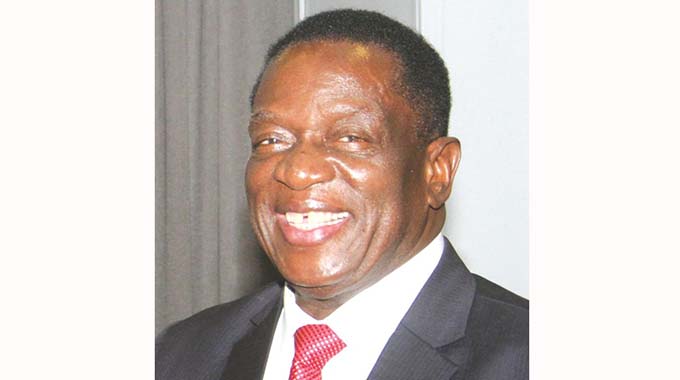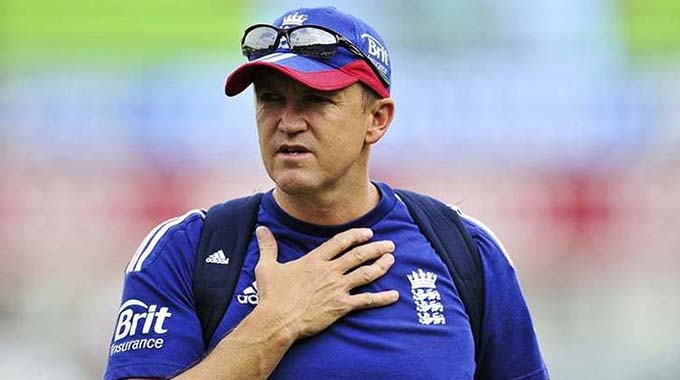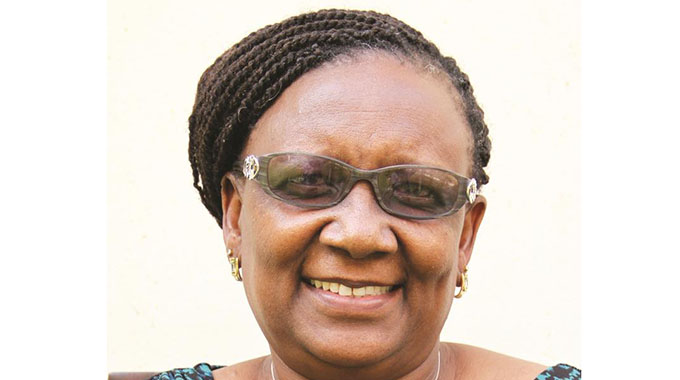President is right on anti-corruption unit

Tinomudaishe Chinyoka Correspondent
THERE is a reason why I don’t normally read Alex Magaisa’s “Big Saturday Read”, and it is not just because it is always unnecessarily windy and boring to read, though there is something to be said about that.
Rather, it is because I have always had the sneaky suspicion that if I could spare enough time to read, I would end up writing a scathing reply and I sincerely hope that this one is not. Because you see, there is a reason why those who cannot do, teach.
According to Magaisa, the President Mnangagwa’s new Anti-Corruption Prosecution Unit is unconstitutional.
He says that this is because (a) it was established by decree, (b) the President’s Office would be managing it and therefore doing prosecutions, (c) it gives prosecution authority to the Office of the President (not sure why (b) is different from (c) but hey), (d) it interferes with the independence of the Prosecutor-General (PG)and the National Prosecution Authority and (e) any prosecution conducted under the unit would be fatally flawed and declared a nullity in court.
There is a reason why there are so many lawyer jokes and none of them flattering. And this did not start recently.
From thousands of years ago comes this epigram, which demonstrates a client’s frustrations with their lawyer and how these people argue on a tangent, forever failing to grasp the issue at hand and trying to confuse lay people with verbose and high sounding words:
“My lawsuit has nothing to do with assault or battery or poisoning, but is about three goats, which have been stolen by my neighbour. This is what the judge desires to have proved to him; but you, with swelling words and extravagant gestures, dilate on the Battle of Cannae, the Mithridatic War and the perjuries of the insensate Carthaginians, the Sullae, the Marii, and the Mucii. It is time, Postumus, to say something about my three goats.”
Corruption is a scourge on our country. It is so pervasive that if you threw a stone into a crowd, you might miss your target, but you will definitely hit at least one corrupt person. This disease, the President wants to get rid of.
When inaugurated, he vowed to fight against corruption.
Some people have been arrested, but none prosecuted. Blame for this of course has been visited (by Magaisa and the political party he now supports) on the President, as if he, the President, should walk into court to prosecute people.
Having identified the reason why there are no prosecutions, the President has set up a unit whose work he will monitor (in the sense that he will monitor results, which is really all that being based in President’s Office means, they won’t actually be sitting on his desk or anything like that) and instead of applauding this as evidence of a hands-on approach to fighting the scourge of corruption, academics like Magaisa wax lyrical about the unconstitutionality of this or that.
There is a reason why lawyers laugh at judgments where Madhuku represents someone: he usually loses. Back then when he could not practise and was writing as an academic, he too used to wax lyrical about how this or that was wrong, unconstitutional or otherwise.
But you see, just because an academic thinks that something is unconstitutional does not make it so, it is just his opinion. It is when one gets the chastening experience of appearing in court before learned judges that one finds that one’s notions about the law were sadly mistaken. Magaisa has not practised law beyond some 15 years ago as an intern.
Like I said above, those who cannot do, teach.
There is a reason why the President’s action was not unconstitutional. Yes, the unit will prosecute, but only after applying for, in each case, an authority to prosecute from the PG. This is the equivalent of a private prosecution and is perfectly legal.
A racist NGO in South Africa does this: they apply for permission to prosecute, and they want Grace Marufu (Mugabe) as a defendant in one case.
Magaisa simply says that this is dangerous and illegal. Why? He does not say, because lawyers like to do that, say something dramatic and leave you hanging so that you think the reason why you don’t get it is because you are not a lawyer, instead of there being nothing to get.
There is absolutely nothing dangerous about a prosecution based on an authority to prosecute, unless if you are the defendant and have an academic for a lawyer.
Kereke was prosecuted and went to jail following a process whereby an authority to prosecute was issued. Was that dangerous and illegal?
I do not want to confuse my readers with legalese. But this is the position: in 2014, the National Prosecution Act amended the Criminal Procedure and Evidence Act to allow for situations where the PG can appoint any legal practitioners to the position of Special Counsel, which is presumably what will happen in order to staff this unit.
If the PG appoints the people that are to go into this unit and issues them with authority to prosecute each time they have a case ready to go, why is this dangerous and illegal?
There is a reason why the President has chosen to be directly involved with his unit. The clue is in the name. It is an anti-corruption unit.
It is a specialised unit that is dealing with one issue: corruption. It does not usurp or otherwise interfere with the PG’s work, so quite how it can be called an attack on his independence beats me.
It does not prosecute without the PG’s permission, so how can anyone say that “the President conducting prosecutions is unconstitutional?” Which part of the announcement says that the President himself will be giving the unit authority to prosecute?
The existence of the unit does not stop the PG from doing his work. That work will involve prosecuting corruption cases too, there is nothing in the announcement to suggest that corruption cases will only be prosecuted by this unit.
The clear language is that the President has established a unit to complement, not hinder, usurp or otherwise interfere with the PG’s work. So, how does this do any of those things?
Where is the danger? Where is the illegality?
The unit will have a specific mandate, to prosecute corruption cases not being handled by the PG. If the President had gone into the PG’s office and directed that his office should prosecute this or that case, or should prioritise only corruption cases, that would be an unconstitutional interference.
What he has done is come up with an ingenious way to get the work done by focused personnel with nothing else on their docket than corruption cases.
But the proviso that all prosecutions will depend upon the issuance of authority by the PG means that ultimately, it is the PG who decides on whether or not a person is prosecuted.
While Magaisa touts for clients by suggesting that anyone prosecuted by the unit will be able to have their prosecution declared null and void, he fails to see that if that is indeed a live issue, it will be raised at the beginning of any trial and not after? It pays to be in practice before one starts making pontifications on issues of practice. But, like the man said, those who can’t, teach.
Like most academic lawyers, Magaisa falls into the trap of defining the problem, then providing answers for that problem, which might not necessarily be the issue at hand. In his thinking, the President has gone and done this without consulting the PG.
According to Magaisa, the President has already appointed the people that will be prosecuting, without the PG.
He has identified the targets for prosecution, without the PG.
But, all this is highly speculative. And unnecessary. The President is not just a lawyer, but one who swore an oath to uphold the Constitution.
Just because people do not have enough information about how something works is no licence for them to fill in the gaps with their subjective reasoning and decide that it is unconstitutional merely because they weren’t consulted.
And, there is a bigger problem for me. We all agree that we must fight corruption. And that the present pace of prosecutions is not ideal.
In fact, the prosecutions have been so toothless that some flagrantly corrupt individuals who had fled the country for fear of the long arm of the law (some of whom had the benefit of Magaisa’s legal advice) have started to return, confident that they will not be touched by the law.
We needed a saviour from such tsvukukuviri. The action by the President is a positive move to address a serious problem.
Instead of devoting tomes of words on why this step is wrong, perhaps it might have been better for academics to address us on how this might work?
That would have been more useful than the negativity that ensues from this long Tuesday “Big Saturday Read”.
But, I guess I should not judge: no-one ever said that lectures were lively. We got a point of view, albeit a wrong one, but still it was free. As they say, those who can’t, teach.
Tinomudaishe Chinyoka is a Gweru-based lawyer and a prominent former student leader at the University of Zimbabwe







Comments